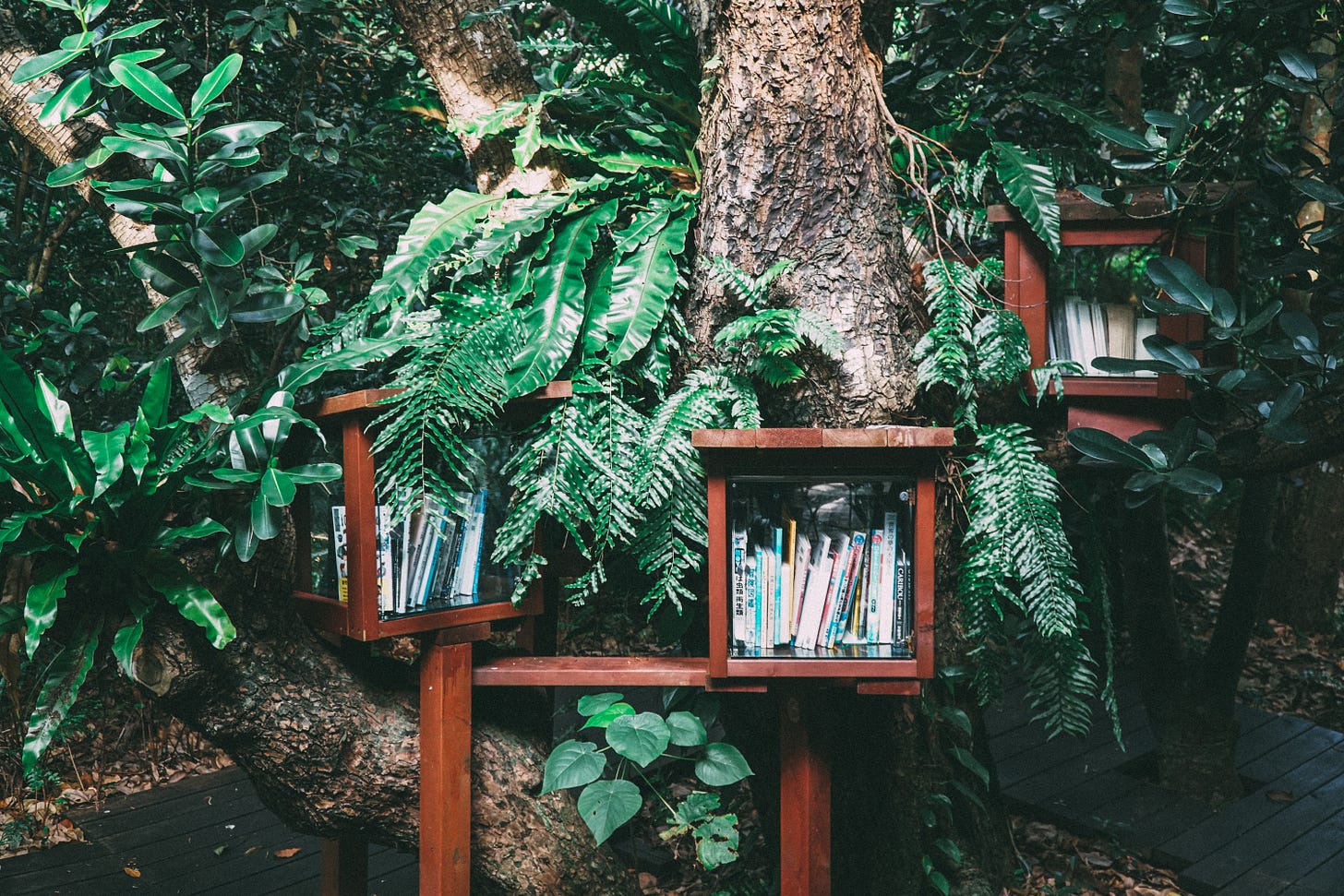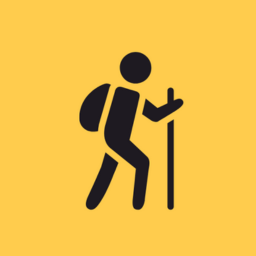
Greetings fellow wanderers,
Today I am republishing another post from the archives. As Those Who Wander is quickly approaching 700 subscribers, I am grappling with the fact that most new subscribers may not have access to or are familiar with some of my initial writings. With 95 posts in the archive, I want to expose these paywalled posts to newcomers.
If you have been enjoying these ramblings on travel, adventure, and anthropology, please consider supporting my writing, which grants you full access to everything I’ve written on Substack, including excerpts from my upcoming book. In addition, the proceeds will go toward publishing and promoting my forthcoming book ‘An Anthropology of Wandering: How Adventure Can Alleviate a Fearful Culture’. The book is a first-person account of backpacking the Appalachian Trail that dives into anthropology, travel, fear, and the meaning of adventure in culture and society. If you love social science, adventure, and travel, this book will be for you. Stay tuned for more updates.
Lastly, Substack recently enabled an exciting new feature on their app—text-to-speech for all your favorite posts! You can now listen to anything published at Those Who Wander just like a podcast. And it’s incredibly simple:
Navigate to the post you want to listen to.
Click the play button in the upper right-hand corner of the screen.
Voilà!
Thank you to everyone who has subscribed and supported my work thus far. Cheers! -JSB
Now onto today’s archived post, On Wayfarers and Bibliophiles.
“What an astonishing thing a book is...one glance at it and you're inside the mind of another person, maybe somebody dead for thousands of years. Across the millennia, an author is speaking clearly and silently inside your head, directly to you. Writing is perhaps the greatest of human inventions, binding together people who never knew each other, citizens of distant epochs. Books break the shackles of time. A book is proof that humans are capable of working magic."
-Carl Sagan, Cosmos
Knowledge is existential. The more we learn to understand our reality better, the less we will be deceived by frauds, conmen, ideologues, dogma, propaganda, superstition, and tribalistic thinking. These unsavory features of humanity often lead us astray and take advantage of us in various ways. These maladies seem to occur more frequently in our time, as they now inhabit virtually every political and social group we encounter, but there is something we can all do about it.
There are two things on this planet that I am certain will help to prevent more of us from succumbing to these human shortcomings: reading and traveling. But not just any reading and traveling per se. No single book or trip automatically provides us with all the answers to life’s mysteries and lessons. What I am talking about is something we cultivate over a lifetime. What is required is an uncompromising commitment to reading widely and deeply, and if possible, traveling to diverse landscapes and cultures outside our routine lives and comfort zones. Our efforts will be even more impactful if we can instantiate this trend of reading and traveling in our youth as early as possible. See here for a previous post about traveling with children and sustaining wanderlust as a parent.
Such commitments are not easy, however. They require extensive time, savings, and discipline. Some of us love picturing ourselves sitting in some far-away café, delicately sipping a cappuccino while our eyebrows raise over the page of the latest and greatest novel. This ideal image looks quaint and may be Instagram-worthy, but it fails to capture something of what it truly means to dedicate ourselves to the pursuit of knowledge.
There is a paradox in how we envision travel and reading in our culture. From afar it looks fun and luxurious, even easy, and it certainly can be. But the moments of our travels that we capture are often the highlights of our trips and never all the tedious, stressful moments we wish to forget. We’re highly selective about the images we project to others in our social media age, and how we cultivate those images for our friends, family, and fans often distorts the reality of consistent travel and reading.
Acquiring the discipline of reading regularly feels like homework, and most people hate homework. Traveling can be expensive, time-consuming, and inaccessible to many of us. Nevertheless, becoming a bibliophile and wayfarer is worth striving for if we agree with and take seriously the first line of this post: knowledge is existential. The quality and quantity of information we acquire throughout our lives can have a dramatic and consequential impact on us.
The ancient Greek philosopher Socrates’ now overly-stated quote that “the unexamined life is not worth living” remains evergreen. Throughout history, many of our greatest minds have wrestled with the meaning of life and the pursuit of knowledge, but what does an examined life look like for each of us and how do we go about examining our life? Does becoming a bibliophile or wayfarer genuinely guarantee we’ll obtain this “examined life”? In short, do travel and books bring us wisdom?
I believe the answer to that is a confident yes…but there are caveats.
Extensive reading and traveling go hand in hand because they have a similar effect on our minds: they often challenge and expand our worldview. Those things I mentioned at the beginning—frauds, tribalism, dogma—are antithetical to what one obtains by reading and traveling extensively because they outright restrict or limit one’s worldview by expending with nuance and making things simplistic—black and white. We are all highly susceptible to thinking narrowly because it’s easy and tempting to think simply about the world. The world is a complex and confusing place after all, and it is convenient if there is something that can make complex issues more palatable. But caveat emptor! What ideologies conveniently do for us is pre-package everything we need to know about a topic into easily remembered and repeatable blurbs. Most politicians have learned the art of using ideologies to get your vote, but at the expense of pitting people against one another in crude ways.
I like to believe that reading many books and experiencing other ways of seeing and being in the world automatically challenge our preconceived notions of others and that in doing so, we discover the inherent complexity and nuance in the world. Let’s coin a phrase together and say that books and traveling are mediums of nuance because they are both activities that tend to reveal the gray areas of the world by exposing us to ideas and perspectives that run counter to our worldviews.
Surely then, we all become humbled by the immensity of knowledge that exists in the world when we realize that a single human mind is far from capable of grasping all there is to know. What’s even more beautiful is to think that everyone you encounter will always know something you do not. Try to find out what those things are. This realization then compels us to cooperate because we are mutually dependent on everyone else for their knowledge. As the futurist Alvin Toffler once said,
“Knowledge is the most democratic source of power.”
But perhaps I am wearing rose-colored glasses here.
Despite how empowering these mediums of nuance are, they are not foolproof, nor do they necessarily make one a better person. No matter how much we read or travel, we are forever susceptible to becoming misguided and egoistic. There are, unfortunately, plenty of incredibly well-read and well-traveled people who are also complete snobs and feel morally superior to others simply because of how much they’ve read and traveled. I’ve met a few people on my journeys and in academia that are like this and they completely shattered my naïve assumption that being well-traveled and/or well-read automatically meant being humbled and enlightened. Not so, it turns out. However, in my experience, sanctimonious travelers and snobbish bookworms are also few and far between and I believe more the exception rather than the rule.
Although travel and reading do tend to challenge our worldview for the better and can potentially reorient how we think about other cultures, people, and ideas that bring us closer to the truth of our reality, these things do not automatically happen when we travel and read. It appears then that it requires something else than just simply reading and traveling a bunch. We still must have open minds and hearts as a prerequisite to our travels and a willingness to be humbled by these experiences.
Thus we never become Zen-like and wise simply because we travel and read, but overall, I do believe we become a little better. We become improved versions of ourselves when we are immersed in a story or culture that forces us to confront an unfavorable bias or reorients our perspectives, which is still significant, consequential, and wonderful no matter how trivial it may seem. What resonates most with me and what I believe best captures the humility-inducing effect of reading and traveling is something Anthony Bourdain wrote after he traveled in Peru,
“It seems that the more places I see and experience, the bigger I realize the world to be. The more of it I become aware of, the more I realize how relatively little I know of it. How many places I have still to go, how much more there is to learn. Maybe that’s enlightenment enough—to know that there is no final resting place of the mind, no moment of smug clarity. Perhaps wisdom, such as it is, for me, means realizing how small I am and unwise and how far I have yet to go”
The message of becoming a bibliophile and wayfarer is easy: read more, travel more. In sum, wonder, wander, repeat. And as challenging as that can be, make it happen anyway because, after all, knowledge is existential.
If you enjoyed this article, consider these related articles from Those Who Wander:
Thanks for being a fellow traveler with me through this read. Please consider subscribing, sharing, and supporting this project. Much more to follow.
Cheers!
-JSB






Oh gosh Justin! I posted that note with Bourdain's quote yesterday before I even got to read this post! I agree on both the traveling and reading - you can learn so much about the world, it's such an education!